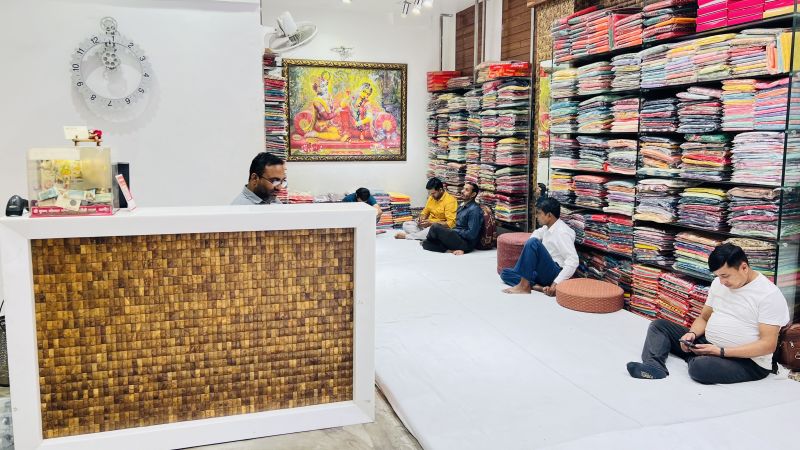India’s cultural landscape is heavily influenced by elaborate wedding ceremonies that span multiple days and require numerous outfit changes. Brij Kishore Agarwal, a sari shop owner in Old Delhi, used to rely on cash transactions from customers, but now almost all payments are made through e-payment methods like the Unified Payments Interface (UPI). This has revolutionized daily life in India, with even tea sellers and tuk tuk drivers using their phones to make payments.
The push towards digitization in India began around 15 years ago, but it took off in 2016 with the launch of UPI by the National Payments Corporation of India. This allowed users to transfer money instantly from almost 600 member banks and fintech companies without transaction fees. The government’s decision to scrap large banknotes that year also spurred the adoption of digital payments, leading to a surge in e-transactions.
The Covid-19 pandemic further accelerated the use of digital transactions in India as people sought to minimize physical contact. Now, UPI is used to pay a wide range of vendors, from vegetable sellers to doctors, and has become the primary mode of payment in the country. Despite this widespread adoption, there are still some individuals, like rickshaw driver Azeez, who are hesitant to switch to e-payments due to fear or lack of education.
The future of India’s economy is closely tied to the success of digital payments, with UPI aiming for two billion transactions a day by 2030. The impact of UPI adoption is visible on a micro level, such as increased efficiency and transparency for businesses like Agarwal’s sari shop and enhanced sales for small vendors like flower seller Kapil Sharma. Overall, digitization has helped achieve an 80% financial inclusion rate in India and made citizens feel more connected to the country’s economic growth.
NPCI is now looking to expand UPI internationally, allowing Indian citizens working abroad to send remittances back home and enabling travelers to make payments using UPI. The platform’s success has garnered interest from other countries and has the potential to elevate India’s standing on the global stage. With strong support from those who have already benefitted from UPI, its dominance in India is only expected to grow, as more individuals embrace the convenience and efficiency of digital payments over traditional cash transactions.


